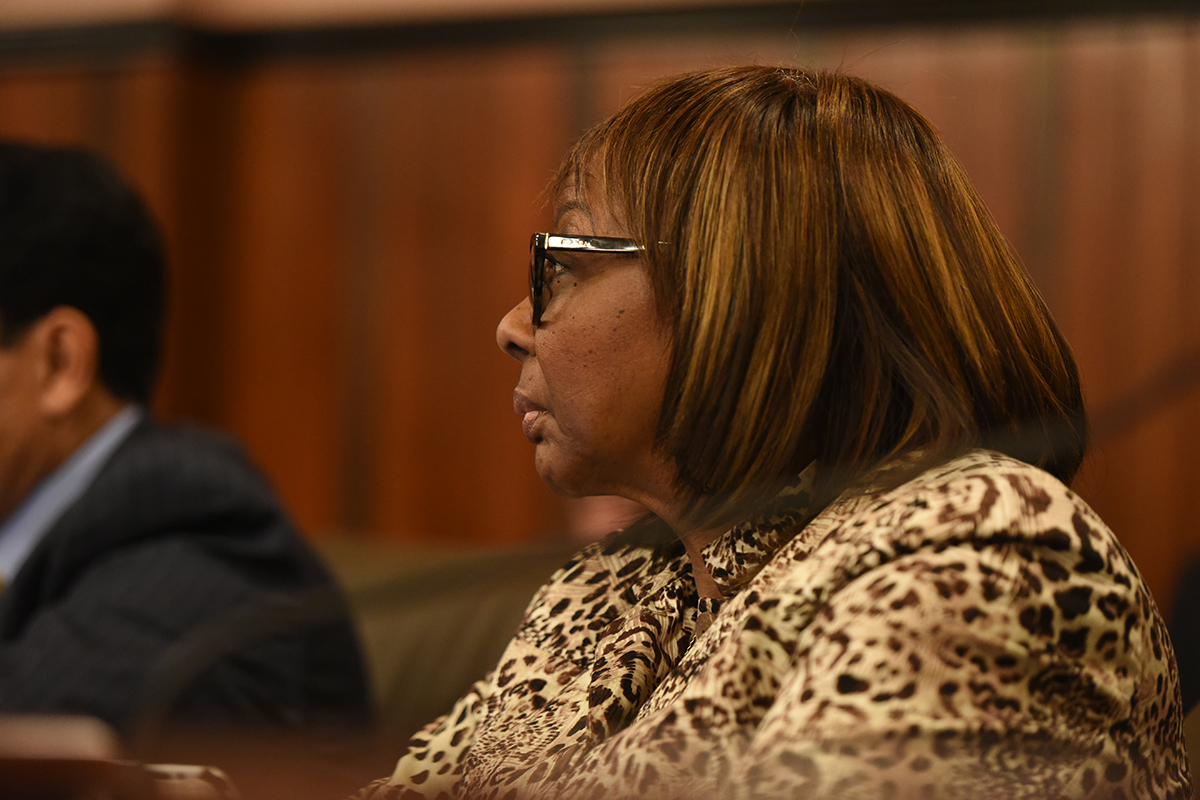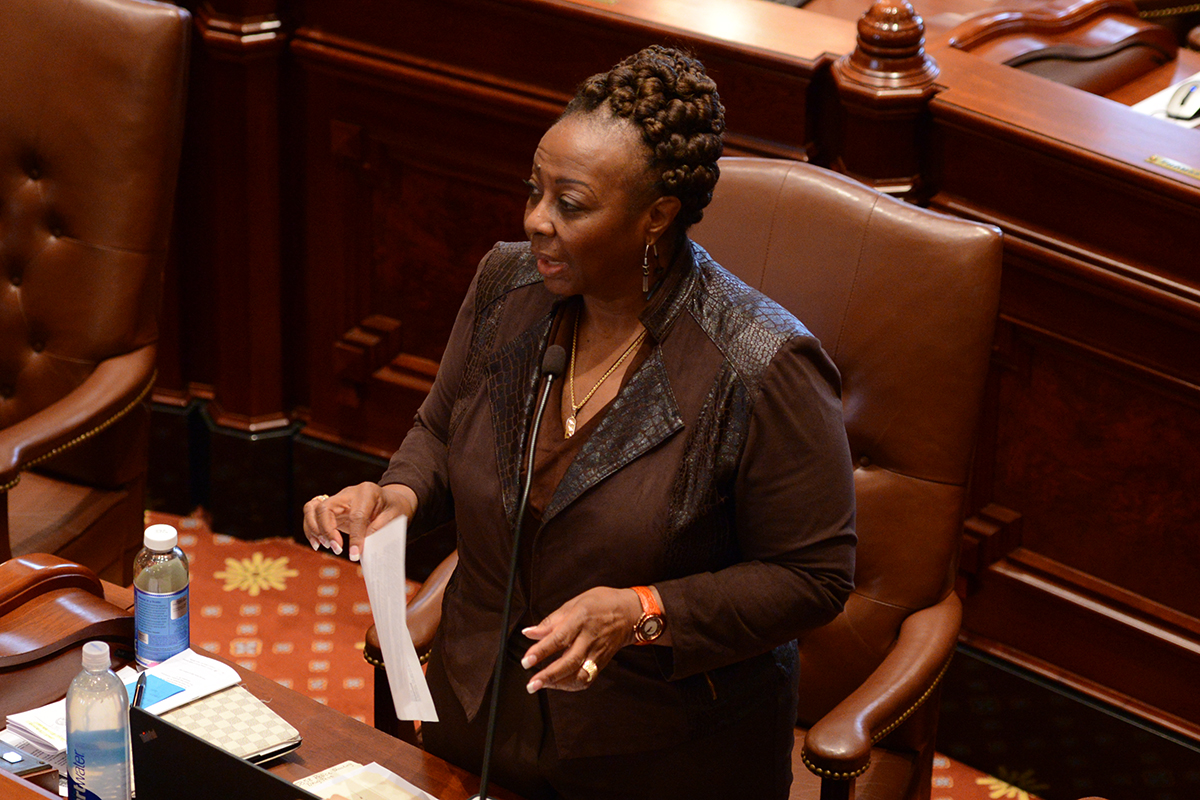Rauner’s just-in-case prison policy has lawmaker worried
- Details
- Category: Frontpage

“Forgive me for being suspicious, but we’ve got a governor saying he wants to reduce the prison population while at the same time his prison director is holding onto empty prisons just in case they’re needed? Something doesn’t add up,” said State Senator Mattie Hunter, a Chicago Democrat.
Hunter’s comments came in response to recent testimony from Illinois Department of Corrections Acting Director John Baldwin before a key Senate budgeting committee. Senator Hunter, a member of that committee, asked what the Department of Corrections’ plans were for unused prisons in Dwight and Tamms that once combined to house more than 1,000 inmates but have been shuttered for nearly four years.
Senator Hunter: Too many communities of color are struggling with unemployment
- Details
- Category: Frontpage

“We have failed our young people,” said Hunter. “We need to further our support for programs that will help keep our youth active and ones that will put them to meaningful work, especially youth in communities where their only other option is to turn to the streets.”
The University of Illinois at Chicago released a report in 2016 that states there were 190,945 youth and young adults between the ages of 16 and 24 years old who were jobless and not in school in Illinois. In other reports, black teens in Chicago aged 16 to 19 are 88 percent unemployed. In Chicago, 85 percent of Hispanic teens in the same age range are unemployed compared to 71 percent nationwide.
Hunter: Drug, alcohol testing should follow all officer-involved shootings
- Details
- Category: Frontpage

The initiative aims to improve credibility in police department investigations. It would require officers to submit drug and alcohol test results no later than one hour after a shooting.
“Whether these attacks were targeted or unfortunate accidents, this policy will hold law enforcement accountable for the frequent tragedies of deadly force,” Hunter said.
Sen. Hunter: Our children are not a distraction
- Details
- Category: Frontpage
State Senator Mattie Hunter (D- Chicago) took issue with the Rauner administration’s reaction to a court ruling on Chicago Public Schools’ lawsuit against the state regarding education funding. On Friday, Rauner Education Secretary Beth Purvis called the fair funding lawsuit a “distraction.”
“Our children are not a distraction,” said Hunter. “I resent the implication that low income children in my district are a distraction. The children of Chicago are facing the real possibility of having their academic progress disrupted.”
“Governor Rauner continues to play political games and refuses to acknowledge the seriousness of the situation. Time after time, he has turned his back on Chicago’s students.
“It is absolutely unfair and unacceptable for children in some parts of our state to receive better education than others and for the governor and the state to sit by and do nothing.”
More Articles …
Page 112 of 143



